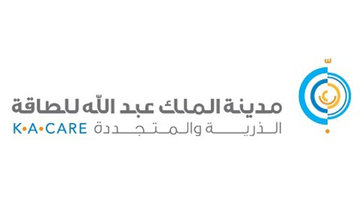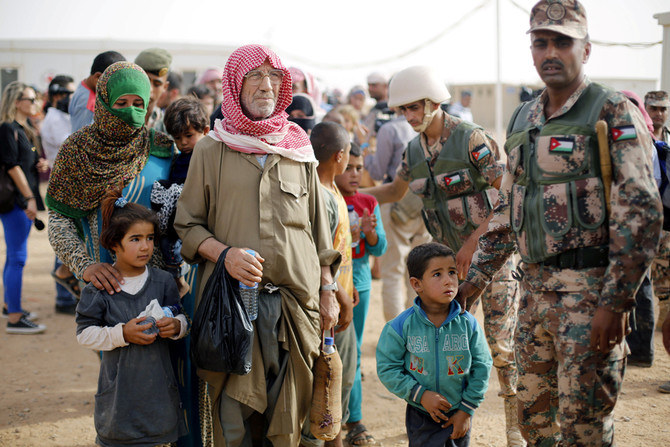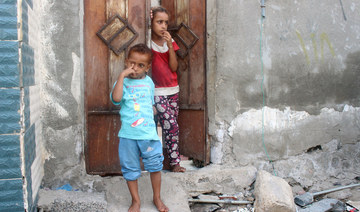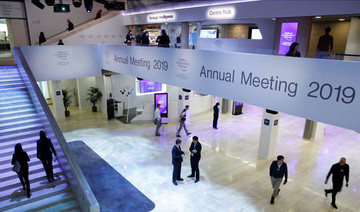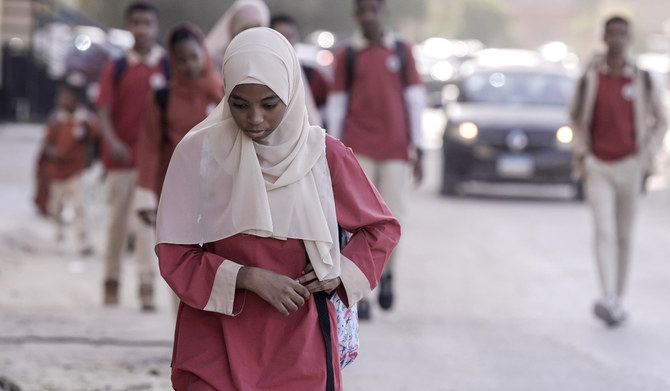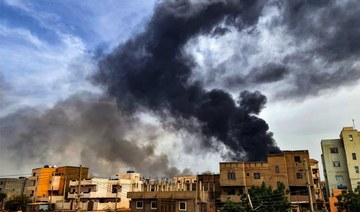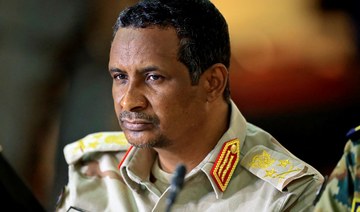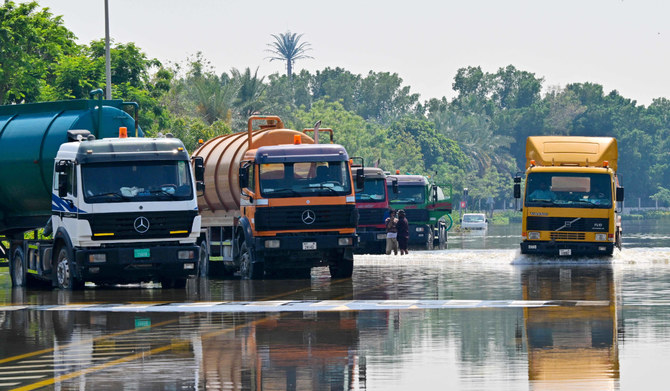DUBAI: Saudi Arabia will be one of a handful of countries expected to receive state-of-the-art advanced nuclear reactors from China and Russia, according to a new report.
The report, “Advancing Nuclear Innovation: Responding to Climate Change and Strengthening Global Security,” was commissioned by the Global Nexus Initiative. This is a project established by the Partnership for Global Security, a Washington DC-based think tank, and the Nuclear Energy Institute (NEI), which represents the US nuclear energy industry. It is a publicly available assessment of the non-proliferation, security, and geopolitical characteristics of advanced nuclear-reactor technology.
The report, which took 16 experts over a year to produce, says that advanced reactors will likely be ready for deployment within one to two decades, setting the stage for major technological competition among powerful geopolitical rivals.
Although complicated by politics, the economic case for countries to invest in civil nuclear reactors as part of a mix of alternative energy sources is compelling. The Global Nexus Initiative report says the international community should strive to make sure that any race for market share among geopolitical competitors strengthens nuclear governance rather than weakens it.
“In order to meet the energy and climate challenges which the world faces, advanced reactors should be ready for deployment in the 2025 to 2030 framework,” said John Bernhard, a senior associate at the Partnership for Global Security who earlier served as Denmark’s ambassador to the International Atomic Energy Agency (IAEA).
“These reactors will generally have various advantages — they are smaller and more flexible than traditional reactors, which means inter alia that in many countries, including Saudi Arabia, they can be deployed in remote and arid areas.”
IN NUMBERS
40% - Percentage of Saudi Arabia’s electricity produced by burning oil in 2016
9% - Percentage of electricity used by Kingdom for desalination of sea water
27.3 - Saudi Arabia’s combined target in gigawatts of solar and wind power by 2024
40% - Percentage rise expected in Saudi electricity demand between 2019 and 2030
2x - Fuel burned by Saudi Electricity Company during summer months as during the rest of the year
Saudi Arabia’s growing electricity needs are currently met almost entirely by oil and natural gas. In 2016, for example, 40 percent of its electricity came from oil. The result is a loss of potential export revenue. What is more, Saudi Arabia expects a 40 percent jump in electricity demand between 2019 and 2030, according to Khalid Al-Falih, the energy minister.
Electricity use will rise in the Kingdom due to the ongoing growth of urban areas and plans to develop a strong manufacturing sector. At the same time, according to the Electricity and Cogeneration Regulatory Authority (ECRA), nine percent of the electricity is used for desalination, on which Gulf countries are heavily dependent in the absence of fresh-water sources.
Compared with traditional nuclear reactors, the advanced ones can offer reduced construction time and costs, and a wider variety of sizes and outputs for different locations and applications.
“Besides emission-free electricity generation, they may help in desalination of sea water, which could provide a new source of fresh water to areas in need,” Bernhard said.
“A general benefit of nuclear energy is its potential role in producing carbon-dioxide emission-free electricity for a number of purposes. For the foreseeable future, renewable energy sources like wind and sun will probably not be able to deliver the output needed, such as in industrial development.”
Nuclear-energy experts say advanced reactors offer interesting new possibilities, especially for nuclear newcomers such as Saudi Arabia.
“From a climate-change standpoint, this may be a valuable contribution to the achievement of the Paris Agreement goals from some of the biggest oil-producing countries,” Bernhard said. “I would expect that for various reasons, several Gulf states will be interested in including nuclear energy, partly from advanced reactors.”

The economic case for countries to invest in civil nuclear reactors as part of a mix of alternative energy sources is compelling. (Shutterstock)
A case in point is Saudi Arabia. Among the many goals of its Vision 2030 is a reduction in dependency on oil revenues. To this end, the government has set ambitious goals for renewables, such as 27.3 gigawatts of solar and wind power by 2024.
According to Lady Barbara Judge, former head of the UK Atomic Energy Authority, advanced nuclear reactors are modern, safer, smaller, more convenient and compact. So, “if a country like Saudi Arabia is starting a nuclear program, it might as well start with the best new technology on the market because that’s a great advantage,” she told Arab News. “Saudi Arabia starts with a clean slate and it’s a very fortunate position to be in.”
With their nuclear-export strategy linked to their geopolitical ambitions, Russia and China have an advantage in the development of advanced reactors thanks to state financial backing.
Bernhard said: “Several countries with a nuclear energy tradition and industry are involved in the development of advanced reactors.
“At the moment, it seems that in particular Russia and China have positioned themselves strongly, because of years of experience in this field and state involvement in financing.
“There is a clear geopolitical angle to this. For instance, the sale and servicing of new facilities normally will promote and uphold strong political and economic relations between the providing and the receiving countries for a long period of time.”
The peaceful use of nuclear energy has been globally important for more than 60 years, resulting in 452 nuclear reactor units in 32 countries, most of them in Europe, North America, East Asia, and South Asia.
“Nuclear energy is clean and generates 24/7 so it’s a good companion to sun and wind. Renewables such as solar and wind are excellent sources of energy but dependent on weather conditions, which aren’t always stable,” said Lady Judge, who is also a member of the International Advisory Board for the development of nuclear energy in the UAE.
“So you need to have a stable force of clean energy which is available around the clock to back up any other system of power generation.”
Of course there is no glossing over the importance of the newcomers ensuring, in cooperation with the IAEA, that their nuclear facilities, whether advanced or traditional, live up to the highest standards and requirements with regard to security.
Nuclear technology can have dual use, peaceful or weaponized. An extensive and effective international safeguards regime, implemented by the IAEA, exists to contain the potential proliferation of nuclear weapons.
However, because of their unique features, advanced reactors do not easily fit into the existing national regulatory or international governance regimes, according to the Global Nexus Initiative’s report. In fact, they pose new challenges for the safeguards system.
As such, they will be subject to new security measures to help prevent a hostile outside attack, nuclear terrorism and insider sabotage. “These new technological challenges must be effectively addressed,” the authors of “Advancing Nuclear Innovation” say. “Several countries are focused on developing advanced reactors, including the US, Canada, South Korea, the UK, France, Russia and China. But the lack of a developed regulatory system and regulator experience is a challenge for all nations.”
As advanced nuclear reactors move through the design and development phase, it is also vital to have well-developed test beds to demonstrate the technology, the report says, adding that Russia and China have an advantage in this area.
According to Dr. Peter Bode, a former associate professor in nuclear science and technology at Delft University in the Netherlands, the use of nuclear-power plants in the future energy mix is beyond debate.
“Solar, wind and other renewables will not be sufficient,” he said. “But the future of nuclear in the region is positive, with plants in the UAE expected to be operational soon and used as an example that will quickly be followed by others.”
In a region where the future of oil and gas is unknown, nuclear power is expected to play a significant role. “It is a good companion, even currently, and certainly in the future,” Lady Judge said.
“And that feeling of energy security and energy independence, which nuclear brings, is one which many countries in the Gulf would like to share.”
*An earlier version of this article had stated that Saudi Arabia had set a combined goal of 9.5 gigawatts of solar and wind power by 2023. The figure has since been revised by the Saudi government.




